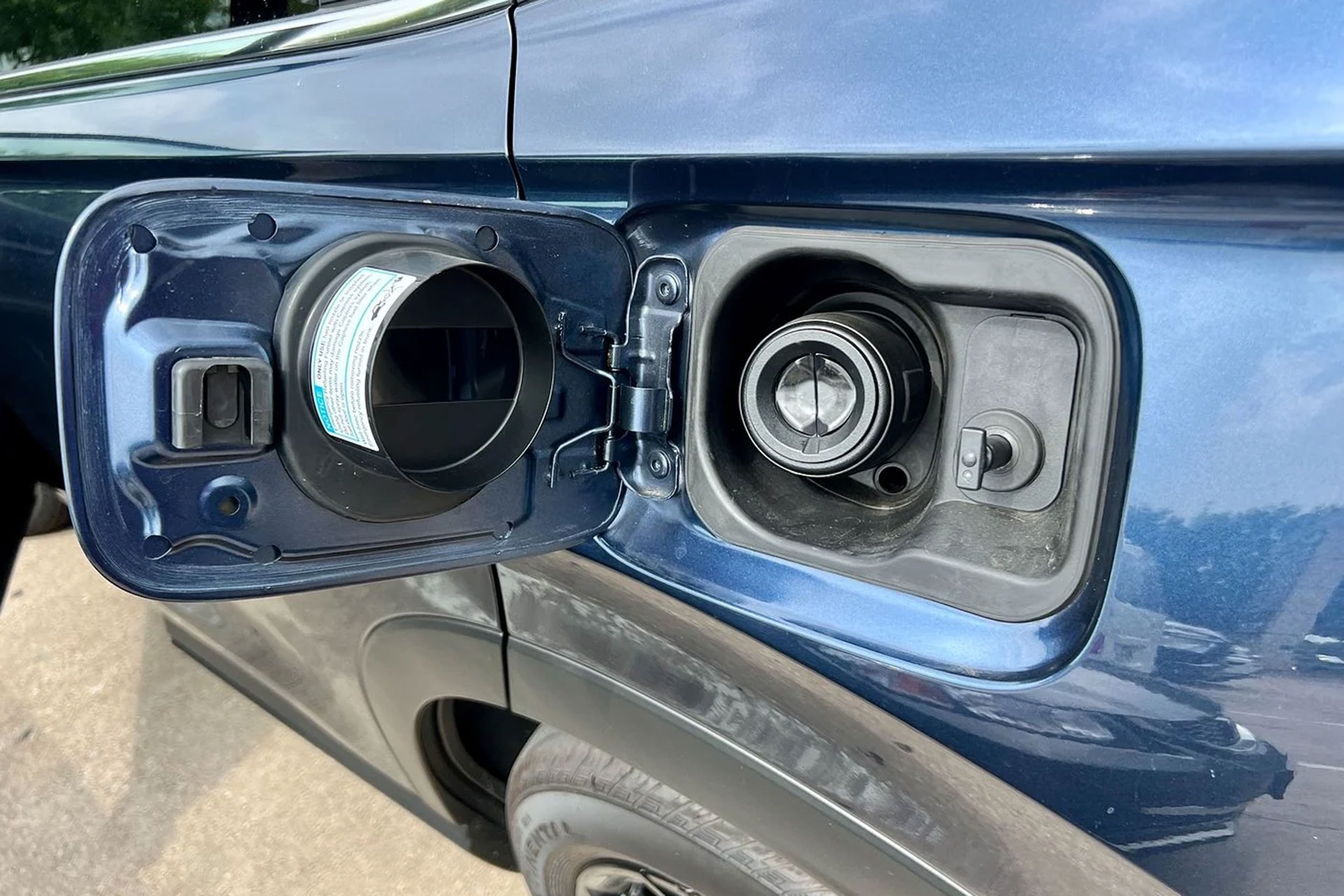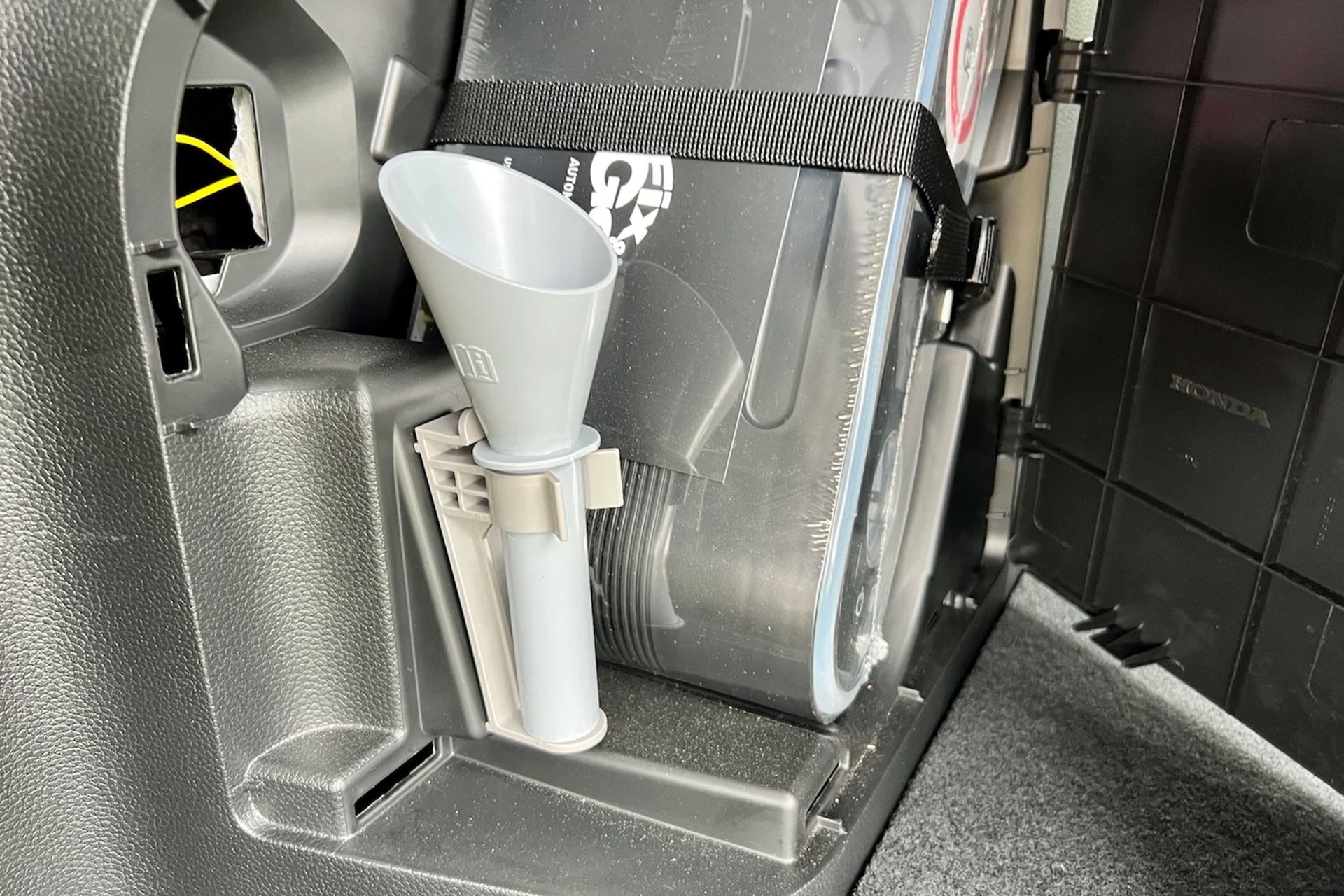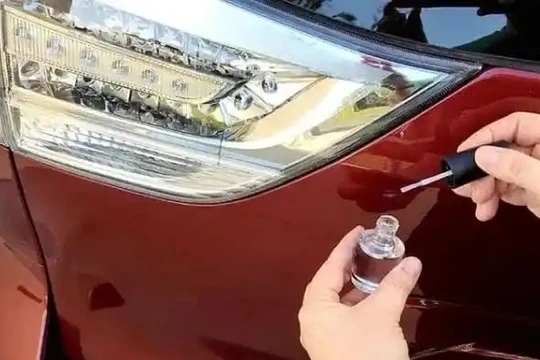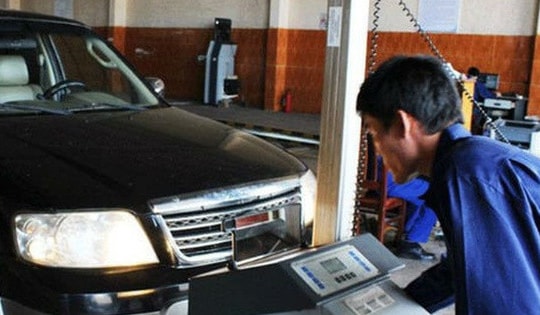Why do many new cars no longer come with gas caps?
Many new car models are being designed without the traditional gas cap, aiming for more fuel-efficient and user-friendly consumption.
Nowadays, car manufacturers are gradually cutting out some equipment on new car models, such as spare tires and more recently the gas cap (traditional removable cap).

Instead of needing a separate cap to screw onto the neck of the tank, sealing the tank, the manufacturer designed the gas tank with a spring-loaded cap that automatically closes.
Ford was the pioneer in using a capless fuel tank as standard on the 7-seat Ford Explorer SUV in 2009. The company then continued to bring this design to other models such as the F-150, Flex, and Lincoln MKS.
Currently, some car manufacturers in the US have also begun to remove the traditional gas cap on newly launched car models such as General Motors with Chevrolet Blazer, Chevrolet Malibu, GMC Sierra, Cadillac Escalade or Honda with Civic, CR-V Hybrid, Passport.
So, how does removing the traditional fuel tank cap help car users?
Advantages: Refueling is convenient, quick and clean.
First of all, automakers found that switching to a traditional capless gas tank was more convenient for consumers.
With the fuel tank having a spring-loaded cap that automatically closes, to fill up, the driver only needs to open the fuel tank cap cover and insert the pump nozzle. Since there is no separate cap to remove and reinstall, drivers will save time and effort filling up.
Additionally, by eliminating the traditional gas cap, automakers can create a tighter seal around the fuel system, reducing the chance of leaks when refueling, according to MotoRad.
Another advantage of a vehicle without a traditional gas cap is that it is more difficult for thieves to steal fuel. This is because the new tank design does not have a check valve mechanism, making it nearly impossible to use a hose to siphon fuel out of the vehicle.
Additionally, one of the obvious advantages is that drivers do not have to worry about getting gasoline on their hands when refueling at gas pumps, and at the same time, it helps reduce the problem of forgetting the gas cap at the gas station or on the roof of the car by absent-minded drivers.

Disadvantage: Dirt can easily get in when pumping gas.
While the traditional capless gas tank is convenient, it also has a few drawbacks.
For example, when needing to siphon fuel from his car in an emergency, due to the one-way valve mechanism, the driver will not be able to do this by using a normal straw. The driver must use a specialized funnel (provided by the car manufacturer). At that time, the funnel left in the trunk will still carry the smell of gasoline into the car.

Some drivers who frequently drive on dirt roads complain that dust accumulates on the gas tank and easily falls into the tank as soon as they install the nozzle. They may also notice a stronger smell of gasoline when filling up, and in some cases the strong smell can cause side effects such as headaches and dizziness.





